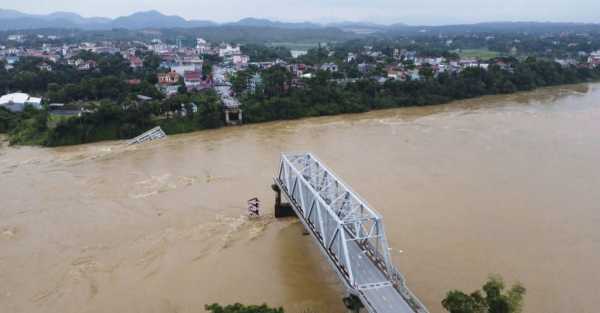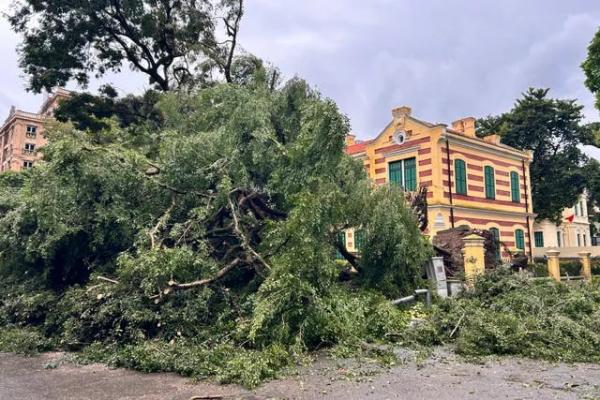
A bridge has collapsed after more rain fell on northern Vietnam from a former typhoon that caused landslides, flooding, power outages and at least 21 deaths, state media reported.
The busy steel bridge over the engorged Red River in Phu Tho province collapsed on Monday morning, local officials told state media.
Several motorbikes and cars fell into the river, the initial reports said, adding that three people fished out of the river in ongoing rescue operations had been taken to the hospital. No casualties have yet been reported.
Typhoon Yagi was the strongest typhoon to hit Vietnam in decades when it made landfall Saturday with winds up to 92mph. It weakened to a tropical depression on Sunday, but the country’s meteorological agency has still warned the continuing downpours could cause floods and landslides.

On Sunday, a landslide killed six people including an infant and injured nine others in Sa Pa town, a popular trekking base known for its terraced rice fields and mountains.
Overall, state media reported 21 deaths and at least 299 people injured from the weekend.
Skies were overcast in the capital, Hanoi, with occasional rain Monday morning as workers cleared the uprooted trees, fallen billboards and toppled electricity poles.
Heavy rain continued in north-western Vietnam and forecasters said it could exceed 15in in places.
Initially, at least three million people were left without electricity in Quang Ninh and Haiphong provinces, and it is unclear how much has been restored.
The two provinces are industrial hubs, housing many factories that export goods including EV maker VinFast and Apple suppliers Pegatrong and USI.

Factory workers said many industrial parks were inundated and the roofs of many factories had been blown away.
Prime Minister Pham Minh Chinh visited Haiphong city on Sunday and approved a package of 4.62 million dollars (£3.51 million) to help the port city recover.
Yagi also damaged agricultural land, nearly 116,192 hectares where rice is mostly grown.
Before hitting Vietnam, Yagi caused at least 20 deaths in the Philippines last week and three deaths in China.
Storms like Typhoon Yagi were “getting stronger due to climate change, primarily because warmer ocean waters provide more energy to fuel the storms, leading to increased wind speeds and heavier rainfall,” said Benjamin Horton, director of the Earth Observatory of Singapore.
Sourse: breakingnews.ie






